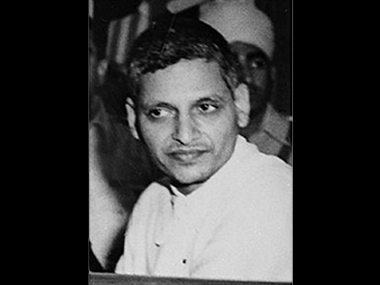The Bharatiya Janata Party and its ideological fountainhead have had an uneasy relationship with the memory of Nathuram Godse, the man who assassinated Mohandas Karamchand Gandhi. From disowning Godse’s ideological association with the RSS to strongly denying the fact that he had links with Sangh ideologue Vinayak Damodar Savarkar, the BJP has been rather uncomfortable about Godse and Gandhi’s assassination.
The Indian economy’s biggest disadvantage is its weak political opposition that can’t offer a better roadmap for the economy than what the Modi-government has done so far. Even the Congress, which ruled the country during most years since Independence, visibly lacks the political will to carry forward the reform agenda and provide a radical shift to lift the economy back on a high-growth path. That’s the reason industrialists and investors support Modi’s BJP and look at the Rahul Gandhi-led alternative with scepticism.
De De Pyaar De movie review: Tabu, Ajay Devgn champion male infidelity, hatred for women, a weird notion of modern coolthDe De Pyaar De has been marketed as an older-man-younger-woman romance, but make no mistake about this: what it truly is is a vehicle for claims of universal male victimhood, better disguised than its co-producer and co-writer Luv Ranjan’s three directorial ventures that have struck box office gold in the past decade — Pyaar Ka Punchnama, Pyaar Ka Punchnama (PKP) 2 and Sonu Ke Titu Ki Sweety (SKTKS).
On a summer afternoon, a postman delivered a bundle of letters at the St Thomas College in Thrissur in Kerala. Strangely, one letter in that bundle had a Swiss stamp on it. It was addressed to PR Jacob, a Chemistry professor at the college. The letter was from the Assistant to the General Secretary, Federation Internationale de Football Association (FIFA). “For your information, an experiment in this respect will be put to test by FIFA during the U-17 World Championship 1991 next August.” Jacob’s suggestion to improve the game, by introducing a “back-pass rule” was going to be tested out. A recommendation from a little-known Indian was going to change the beautiful game forever.
Yashica Dutt’s life would never be the same after 20 January, 2016. Not only because she had posted a note titled ‘Today, I’m Coming Out As Dalit’ on her Facebook account, but also because she no longer felt the need to hide. “The truth was out. I didn’t feel the need the hide, or to escape out of my non-Dalit identity,” she says. A few months later, she would begin to document her act of declaring her caste and her life’s story for a book titled Coming Out As Dalit. It’s a story that Dalits see themselves in and associate with, and one that savarna people find opens their eyes.


)




)
)
)
)
)
)
)
)